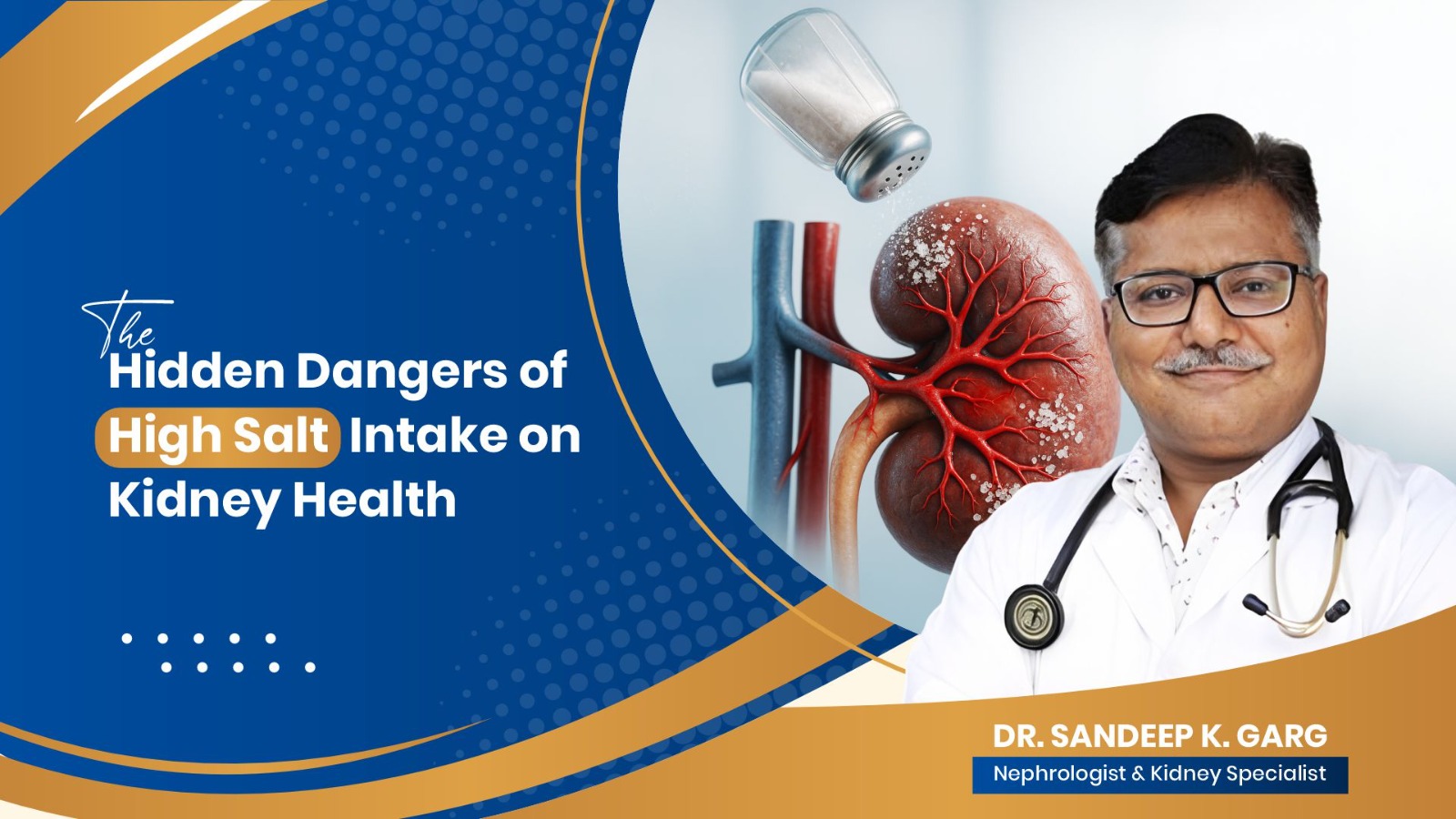
When it comes to maintaining kidney health, one of the most overlooked factors is our daily salt intake. While salt is essential for the body, excessive consumption can put enormous stress on the kidneys, leading to long-term complications. With rising cases of kidney disease in India, understanding the hidden dangers of high salt intake is crucial for protecting overall health and well-being.
In this blog, we will explore how excess salt affects the kidneys, signs of kidney stress, and practical tips to safeguard your kidney health. Expert guidance from Dr. Sandeep Kumar Garg, the best nephrologist in Meerut, highlights the importance of dietary balance for healthy kidneys.
Why Salt Affects Kidney Health
The kidneys are responsible for filtering waste, balancing fluids, and maintaining the body’s electrolyte levels. Salt, which contains sodium, directly influences these processes. When sodium levels are too high:
- Increased Blood Pressure – Excess salt causes the body to retain more water, which raises blood pressure. Hypertension is one of the leading causes of chronic kidney disease.
- Overburdened Kidneys – High sodium intake forces the kidneys to work harder to eliminate the excess, gradually weakening them.
- Protein Loss in Urine – Excess salt may worsen proteinuria (protein leakage in urine), which is an early warning sign of kidney damage.
- Progression of Chronic Kidney Disease (CKD) – For people with existing kidney issues, too much salt can accelerate the progression toward kidney failure.
Hidden Dangers of High Salt Intake
1. Silent Kidney Damage
Kidneys do not show obvious symptoms until significant damage has occurred. By the time high salt intake leads to noticeable problems, kidney health may already be compromised.
2. Increased Risk of Kidney Stones
Too much sodium can lead to calcium build-up in urine, increasing the chances of kidney stone formation. These stones cause pain, infections, and can further impair kidney function.
3. Fluid Retention and Swelling
Excessive salt leads to water retention, resulting in swelling in the hands, legs, ankles, and around the eyes – all signs of kidney stress.
4. Heart and Kidney Connection
High salt intake not only damages the kidneys but also affects the heart. The combination of hypertension and kidney strain creates a dangerous cycle, putting patients at risk of cardiovascular disease.
How Much Salt is Safe?
According to health experts, the recommended daily salt intake should not exceed 5 grams (about one teaspoon). Unfortunately, the average Indian diet often includes double or even triple this amount, largely due to packaged snacks, pickles, fried foods, and restaurant meals.
Dr. Sandeep Kumar Garg, a top kidney specialist in Meerut, emphasizes that reducing salt is one of the simplest and most effective ways to protect long-term kidney health.
Signs You May Be Eating Too Much Salt
- Persistent thirst
- Frequent urination
- Swelling in feet, hands, or face
- High blood pressure readings
- Kidney pain or discomfort
If you experience these symptoms, it’s important to consult a kidney health specialist for timely diagnosis and preventive care.
Tips to Protect Your Kidney Health
- Check Food Labels – Many packaged foods contain hidden sodium. Always read nutrition labels carefully.
- Cook Fresh at Home – Reduce dependence on processed and restaurant foods. Cooking fresh meals gives you better control over salt levels.
- Use Natural Flavor Enhancers – Replace extra salt with herbs, lemon juice, garlic, or spices to flavor food.
- Stay Hydrated – Drinking enough water helps kidneys flush out excess sodium and toxins.
- Regular Check-Ups – If you have high blood pressure, diabetes, or family history of kidney disease, regular kidney function tests are essential.
When to See a Kidney Specialist
If you are struggling with uncontrolled blood pressure, swelling, or family history of kidney problems, consulting an expert is crucial. The earlier you take preventive steps, the better your chances of protecting your kidneys.
Dr. Sandeep Kumar Garg, recognized as the best nephrologist in Meerut, has years of expertise in diagnosing and managing kidney diseases. With a patient-focused approach, he provides advanced care to help maintain optimal kidney health.
Conclusion
Excessive salt intake may seem harmless but can silently damage your kidneys over time. From raising blood pressure to increasing the risk of kidney stones, high sodium consumption is a major threat to kidney health. By making simple dietary changes and seeking expert medical advice, you can safeguard your kidneys for the long term.
For personalized care and expert advice, visit Dr. Sandeep Kumar Garg, the leading kidney health specialist and best nephrologist in Meerut.
📞 For Appointments: +91 9927600666
📞 For Enquiries: +91 9675600666


